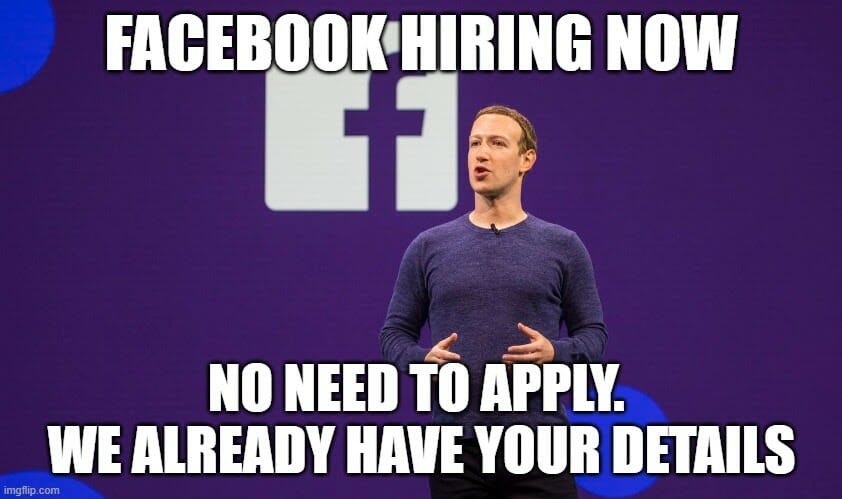AI and Privacy: Unexpected Benefits

In recent years, state and international institutions have tried to face the challenge of privacy and data protection with targeted legislative interventions. But this came at a cost.
More constraints, new expenses, and a lot of cumbersome bureaucracy for companies were the typical price to pay…
In today’s article, we’re gonna find out how artificial intelligence can be implemented to mitigate such issues and make privacy protection… easier to digest.
Ready? Go!
The privacy legislation and its problems
European and US institutions are making huge efforts in the field of privacy protection. The most important milestone, achieved in recent years, is the General Data Protection Regulation (GDPR) in the European Union.
Fairly similar privacy law has been accepted in the United States: the Californian Consumer Privacy Act (CCPA). It entered into force on January 1, 2020.
But GDPR and CCPA have a massive impact on companies and business processes. In many cases, this impact is negative and leads to new costs and obstacles.
In particular, GDPR suffers from two main disadvantages. Let’s see which ones!
1. The GDPR affects everyone indiscriminately
The modern world is very, very interconnected. Communication, business processes, and economic relations integrate the world into a vast network.
The GDPR divides countries into “whitelists” and “blacklists”. This reflects the policies of local authorities, but not of local businesses and, of course, of international companies’ partners and representatives.
Sometimes, such a split is a sufficient reason to cancel profitable business projects, and this negatively impacts high-tech companies.
2. Scammers are still a problem
The GDPR is a general set of rules and approaches. It is not a universal recipe.
And this document doesn’t solve the main source of privacy issues: scammers. One person is enough to steal millions of data.
Solving these problems with AI
Artificial intelligence can successfully solve both of the problems mentioned. How? Keep reading!
Why do companies outsource?
The main reason why companies decide to outsource data processing to other countries concerns costs. Sometimes this reason is the only one.
For example, healthcare industries in the United States may involve Eastern European medical experts to evaluate the results of medical diagnostics. This is because the salaries of experienced doctors are 10 times lower than in the United States.
Another very common example? When you place an order in a large international webshop in London, your order information may be handled somewhere in India or Turkey.
Once your order information has been processed, it will be sent back to the UK, to Guildford (a town near London).
What if AI takes care of it?
The reason why such intricate business processes exist is the fact that only people can process intellectual tasks. And there are different wages in different countries.
This has been for years. But now such data trips can be illegal due to the GDPR.
In the 21st century, the rules of this game have changed. AI technology can perform such processing: for medical cases, for in-store orders, and another hundred thousand cases.
Businesses can implement AI for data processing and keep their whitelisted position. There is no need to go against the GDPR to cut costs.
Investing in AI: costs and benefits
For sure, artificial intelligence projects may require valuable investments, but they can also bring significant profit and legal advantages as the possibility of unauthorized access to private data is minimized.
Hence, AI will help you keep your interconnections legal. All privacy-sensitive data can be processed by the competent authorities. And you will be able to share the processing results with your partner companies.
This is exactly what a company needs! Data processing is just a tool for getting results.
Taking into account the benefits of artificial intelligence such as scalability and processing speed, these solutions will help you keep your business safe.
AI vs bad guys
The fewer people have access to your data, the lower the risk of unauthorized access. Therefore, the very fact of using AI protects users.
This is exactly the solution to the second problem: fraud. Scamming is inherent in people, but not in technologies. Perhaps AI is the safest solution for data processing ever.
I heard a lot of negative opinions about GDPR and CCPA. But I have a positive feeling about it. First, privacy is extremely important. Second, the GDPR and CCPA are pushing the AI transformation forward.

The business benefits of AI
Using AI in privacy-sensitive projects offers great opportunities and can have a significant impact on your business. The most general sources of impact are the following:
1. Transparency
Artificial intelligence can bring a very high level of transparency into business processes.
AI solutions can take care of these processes with some kind of additional validation by an independent expert or even a community of experts to avoid any attempted fraud within it.
But you can’t be so sure about this for business processes in which only real people are involved.
Hence, the use of AI is definitely more transparent. This is really important to ensure data confidentiality.
2. Safety
AI can work with data without the risk of unexpected data sharing because such software solutions work according to rigorous algorithms.
Furthermore, AI models handle data on their own, in a way that is not obvious for humans. It is extremely difficult or even impossible to describe how they work.
Hence, artificial intelligence systems need special types of attacks to compromise them. Compared to regular software, attacks against AI are much less effective and more difficult.
3. Reliability
Business processes based on artificial intelligence are much more reliable than the processes which involve people.
You know, all people are prone to mistakes. Sometimes these mistakes lead to serious privacy issues. An error-prone system cannot be trusted.
The specificity of artificial intelligence systems is that any well-trained artificial intelligence system will perform a task better than a human.
Therefore, the more AI is involved in business processes, the fewer errors the system will have, the more reliable it will be. Only a reliable system can guarantee privacy.
4. AI and outsourcing
AI projects that work with private data are safe with outsourcing and dedicated teams even if they are in blacklisted regions.
Artificial intelligence teams can work with data samples or artificial data samples during project development.
But the team doesn’t need to have direct access to this data!
That’s because Data Generation and Data Augmentation technologies help AI teams create their own datasets that don’t involve real people and, consequently, privacy.
Therefore, data privacy remains reliable both in the development phase and in the resolution phase of real business problems.
Conclusion
Considering the above, if you want to prevent GDPR or CCPA problems for your business, you should seriously consider integrating AI into your business processes.
Or even a whole transformation of your company’s AI!
Need support with your software development?

Konstantin Voicehovsky
Konstantin is a technical manager at Apro. He has gone from a junior developer to an experienced manager during the last 10 years. He’s received an award for the best innovative project in Belarus in 2017. He has done his apprenticeship in Institute of Nuclear Research on predictive models for recommendation systems
